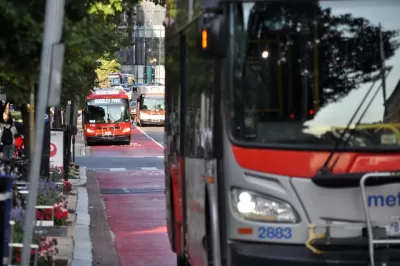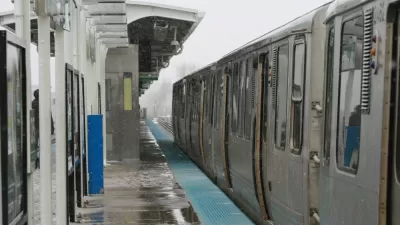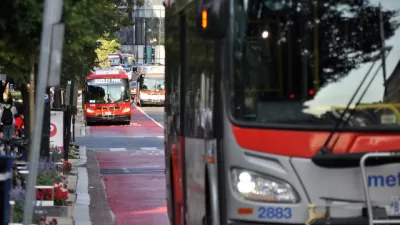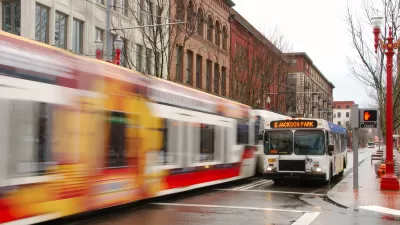Transit service in the District has not yet recovered to pre-pandemic levels, with Black and low-income riders feeling the brunt of the impact.

A blog post from TransitCenter, using data from their Transit Equity Dashboard, assesses the state of Washington, D.C.’s post-Covid transit recovery, which, according to the post, “has been slow and bumpy.”
Unlike other cities that have restored service to pre-pandemic levels, the blog notes that “In August 2022, Washingtonians could access only 91% of the jobs that were accessible by transit in February 2020. In fact, since March 2020, DC residents have never had a level of transit access equal to before the pandemic.”
When it comes to equity, the picture is equally bleak. “White and Asian communities consistently have much better transit service than Black, Hispanic, and low-income communities across every tracked metric. This is despite the fact that Black and Hispanic people are more likely to commute by transit – 17% of Black and Hispanic residents of the District commuted on public transit in 2021, compared to only 7% of White and Asian residents.” Black District residents are able to access 55 percent as many jobs as white residents, 5 percent lower than before the pandemic disrupted transit services. Black residents also have longer trips to reach their nearest hospital.
The blog notes that D.C. transit services are slowly improving, but vast racial and economic disparities remain. See the blog post, linked below, for more details on the District’s transit recovery.
FULL STORY: Checking in on Washington DC’s Transit Recovery

Planetizen Federal Action Tracker
A weekly monitor of how Trump’s orders and actions are impacting planners and planning in America.

Maui's Vacation Rental Debate Turns Ugly
Verbal attacks, misinformation campaigns and fistfights plague a high-stakes debate to convert thousands of vacation rentals into long-term housing.

San Francisco Suspends Traffic Calming Amidst Record Deaths
Citing “a challenging fiscal landscape,” the city will cease the program on the heels of 42 traffic deaths, including 24 pedestrians.

Amtrak Rolls Out New Orleans to Alabama “Mardi Gras” Train
The new service will operate morning and evening departures between Mobile and New Orleans.

The Subversive Car-Free Guide to Trump's Great American Road Trip
Car-free ways to access Chicagoland’s best tourist attractions.

San Antonio and Austin are Fusing Into one Massive Megaregion
The region spanning the two central Texas cities is growing fast, posing challenges for local infrastructure and water supplies.
Urban Design for Planners 1: Software Tools
This six-course series explores essential urban design concepts using open source software and equips planners with the tools they need to participate fully in the urban design process.
Planning for Universal Design
Learn the tools for implementing Universal Design in planning regulations.
Heyer Gruel & Associates PA
JM Goldson LLC
Custer County Colorado
City of Camden Redevelopment Agency
City of Astoria
Transportation Research & Education Center (TREC) at Portland State University
Jefferson Parish Government
Camden Redevelopment Agency
City of Claremont





























